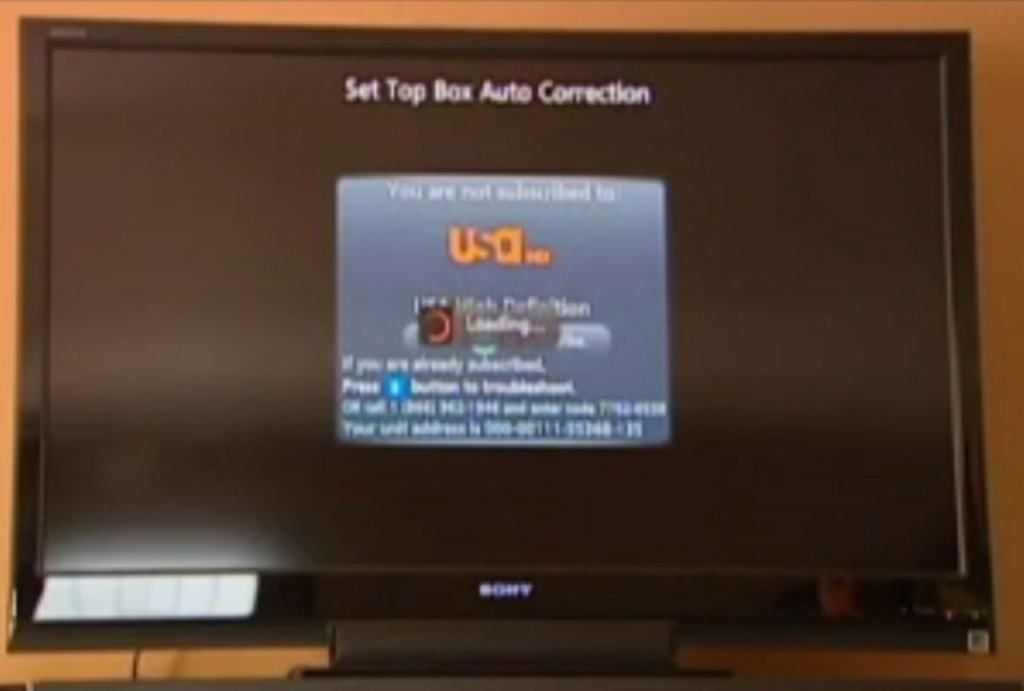An angry commentator on WHP-TV in Harrisburg summed up his recent misadventures with Verizon’s customer service on the 6pm nightly news:
“Verizon Service Sucks!”
R.J. Harris was just one of thousands of Verizon FiOS customers across the northeast who found themselves without FiOS television service March 23rd, forcing many to miss NCAA basketball tournament games and the season premiere of “Mad Men.”
Because of a software glitch, Verizon’s media hubs in Buffalo and Harrisburg, Pa., shut off cable networks in FiOS cities across the northeast. Viewers were told they were “not authorized” to receive cable networks, which brought many to the phones to call Verizon for help.
Harris joined enormous call queues that extended one, two, even three hours before most gave up. Even worse: Verizon’s automated customer service agent provided voice synthesized non-answers regarding the FiOS outage.
“Lots of ‘press one,’ ‘press three,’ blah blah blah and then a talking computer,” Harris recounts. “One day later I tried to use Verizon’s ‘in home agent’ on my PC to get help. Verizon took almost two hours to update my software before I could use the agent.”
 Harris finally ended up in a chat session with “Sandeep,” half a world away. But Harris found the offshore customer service agent was the first person to actually explain the problem.
Harris finally ended up in a chat session with “Sandeep,” half a world away. But Harris found the offshore customer service agent was the first person to actually explain the problem.
“I told Sandeep I wanted management to know how I felt about my customer service experience,” Harris said. “He obliged by getting his boss Muhammad to join the chat. Muhammad — the manager — added one word to the chat: ‘OK.’ That’s it.”
“If you are starting a new company in America and you want the worst customer service policy you could possibly have, model your company after Verizon.”
[flv width=”360″ height=”290″]http://www.phillipdampier.com/video/WHP Harrisburg Common Sense 3-29-12.mp4[/flv]
WHP-TV commentator R.J. Harris is furious at Verizon for its FiOS and customer service failures. (3 minutes)
Customers around the northeast shared one thing in common: they couldn’t talk to anybody at Verizon about the mishap.
Barbara Adams in Latham, near Albany, found that to be the case. Adams called the local newspaper for help instead, which they gave her. A Verizon FiOS customer near Buffalo ended up getting technical support from a friend’s Facebook page.
Verizon’s technical glitch required customers to follow a fairly complex set of instructions to fix the problem:
- With the TV and set-top box on, press Menu on the remote.
- On the TV screen scroll to Customer Support, selecting In-Home Agent.
- Select STB Auto Correct and follow any directions after that.
- The process should take several minutes.
Last week, Verizon began rebooting its home set top boxes remotely to reset them to working order without customer intervention.
But many customers were left without service all weekend long, unable to reach anyone at Verizon to understand why.
The company would not make a definitive statement about providing affected customers with service credits, but if you were affected, we recommend you call or write and ask for yours.
[flv width=”360″ height=”290″]http://www.phillipdampier.com/video/WNLO Buffalo Verizon FiOS Problems 3-27-12.mp4[/flv]
WIVB in Buffalo talked to a local Verizon FiOS customer who found a solution to Verizon’s technical snafu, from a friend on Facebook. (2 minutes)


 Subscribe
Subscribe







